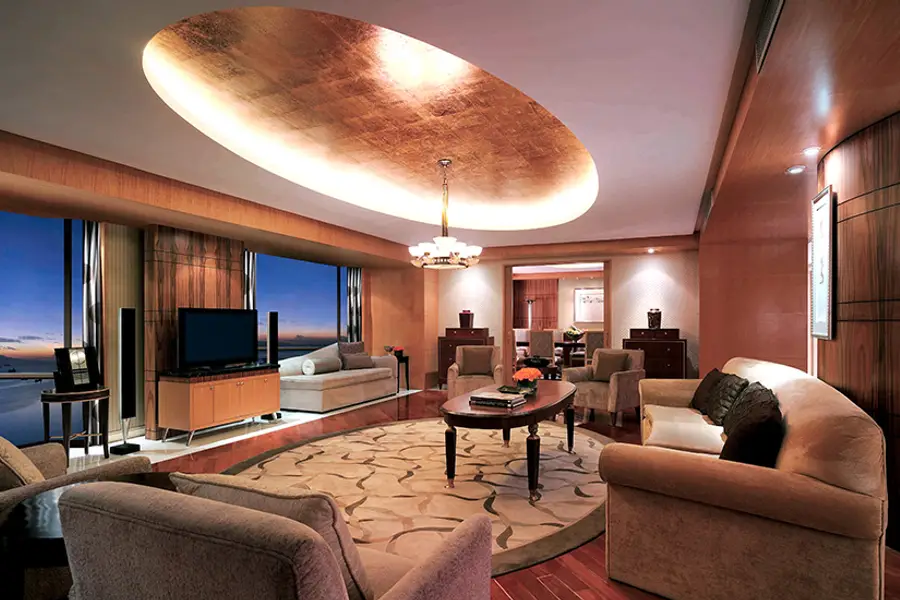Will Int’l Entertainment’s billion-dollar gamble finally pay off?

The property developer is betting heavily on its acquisition of a casino in Manila, as the Philippines privatizes its portfolio of government-owned properties
Key Takeaways:
- International Entertainment Corp. issued its fifth profit warning in two years last week, saying its loss widened by 60% in its latest fiscal year
- The company’s $1.2 billion integrated casino and hotel development in downtown Manila will reopen soon, as the Philippines sells off its 43 state-owned casinos
By Edith Terry
Its bottom line is still shaky, but investors seem to be betting things could be looking up soon for International Entertainment Corp. (1009.HK) (IEC).
The aspiring casino operator issued a profit warning last week, predicting a loss before taxes of HK$260 million ($33.4 million) or more for its latest fiscal year through June, much larger than its HK$162.2 million loss the previous year. But investors didn’t seem too surprised or worried and mostly took the news in stride as the stock barely budged over the next few days.
Perhaps investors were used to this kind of news. After all, this was the company’s fourth negative profit warning since February 2023. Its revenue comes from its New Coast Hotel and equipment leasing to the property’s associated casino, which is owned by Philippine Amusement and Gaming Corp. (Pagcor), the country’s state-owned gambling authority.
The expected loss for the 2025 fiscal year was due to a mix of factors, including higher expenses for general and administrative spending, and marketing campaigns for the casino, as well as a write-off related to an ongoing renovation at the casino. The company’s final annual results, due out on Sept. 26, are unlikely to hold any big new surprises.
Despite the losses, IEC could well be worth a second look, following its May 2024 agreement to purchase and subsequently manage the Pagcor casino attached to its New Coast Hotel property. And in fact, much of those losses are directly related to that transition, which includes a major renovation of the property. That could explain why investors are willing to tolerate higher losses for now, in hopes that things could soon change for the better.
The takeover will make IEC a first-mover as Pagcor puts its large casino portfolio on the block in a campaign to put the properties into private hands. As part of the deal, IEC agreed to spend between $1 billion and $1.2 billion on renovations, developing the property as an integrated resort hotel with family entertainment in addition to gambling. Pagcor ultimately plans to sell all of its 43 casinos, aiming to generate at least 50 billion ($870 million) pesos in proceeds from the sales.
Despite its widening losses and regular profit warnings, IEC’s top line revenue has been remarkably healthy lately. For the six months through December 2024, its revenue more than doubled to HK$267.6 million from HK$105.1 million a year earlier. While its loss for the period nearly tripled, rising from HK$36.1 million to HK$95 million, its bank balances and cash rose from HK$617 million in June 2024 to HK$855 million at the end of December 2024.
That strong growth represented a sharp acceleration from the previous fiscal year through June 2024, when revenue increased by a far smaller 11% from HK$207 million to HK$230 million. That said, the company’s losses are steadily widening as it takes over the Philippine casino. It swung from a small profit of HK$18.3 million in its 2023 fiscal year to a loss of HK$132 million in fiscal 2024.
New investment
The company’s investment in rejuvenating the 26-year-old New Coast Hotel property, originally the Hyatt Regency Hotel & Casino, is a major reason for the red ink. Its general and administrative costs in fiscal 2024 doubled to HK$204.6 million, while its finance costs for that year nearly tripled to HK$70 million.
IEC’s property is in Malate, an older part of downtown Manila away from the concentration of more upscale casino resorts in Entertainment City, also called Pagcor City, and the nearby Ninoy Aquino International Airport. IEC’s involvement in the Philippines goes back to 2007, when it bought a casino hotel in Manila and a 7,128-square-meter plot of land at Novos Aterros do Porto Exterior, which became the site of L’Arc Macau two years later.
IEC’s first incarnation was as an internet content creator called HKcyber.com, part of Hong Kong’s New World group, which was listed on the Hong Kong Stock Exchange’s Growth Emerging Markets (GEM) board in 2000. Four years later, it took over operation of an independent film production company, M8, and changed its name to International Entertainment Corp., which moved to the Hong Kong Stock Exchange’s main board.
Its shares mostly languished after that until Stanley Choi, a renowned poker player and co-founder of Jack Ma’s Yunfeng investment arm, began buying shares in 2017 and ultimately took control of the company. Under Choi, IEC negotiated rights to gaming events organizer PokerStars LIVE in Macao, Japan, South Korea, Vietnam, Singapore, Malaysia and Cambodia.
Choi resigned as chairman in 2022 and was replaced by CEO Ho Wong Meng, a former chairman of Frontier Capital Group, which owns the Stotsenberg Hotel and FortuneGate Casino, both in the Philippines.
IEC will have its work cut out to operate its new property profitably, as it competes against other private companies that have invested in the Philippines casino industry. Operators in Manila’s Entertainment City cluster include City of Dreams, owned by Melco Resorts & Entertainment (0200.HK, MLCO.US); Solaire Resort, owned by Bloomberry Resorts (BLBRF.US); Newport World Resorts, owned by Travellers International Hotel Group; and Okada Manila, owned by Universal Entertainment Corp. (6425.T).
A fifth integrated resort is scheduled to open in the Entertainment City complex before the end of 2025, by another Hong Kong-listed company, LET Group (1283.HK). The Philippines has two other major casino clusters in Clark and Cebu, with Hann Resorts and Casino Plus in the former and Nustar Resort and Casino in the latter.
Compared to Macau, with 2024 gaming revenues of 226.8 billion patacas ($28.35 billion) and the State of Nevada, with $15.6 billion in gaming revenues that year, the Philippines is still a small player. In 2024, Pagcor generated record revenues of 112 billion pesos, or about $1.9 billion, up 41% over 2023, with most of that coming from gaming operations. Its net income in 2024 was 16.8 billion pesos, up 146%, showing the industry can be quite lucrative.
The entire gaming industry in the Philippines, including Pagcor, generated 410 billion pesos in gross gaming revenue in 2024, up 25% from 2023. The figure for the first half of 2025 reached 214.75 billion pesos, another record for that six-month period.
Melco’s market cap of HK$12.31 billion and price to sales (P/S) ratio of 0.29, offer benchmarks for IEC, whose market cap is a much smaller HK$1.69 billion but trades at a far higher P/S ratio of 4.33. Both companies are minnows compared to leading Macao casino operator Sands China (1928.HK), with a market cap of HK$172.5 billion and P/S ratio of 3.12, or SJM Holdings (0880.HK), with a market cap of HK$22.6 billion and P/S ratio of 1.28. Given its smaller size and losses, IEC’s high P/S ratio means the stock could be slightly overvalued at current levels.
Despite its small size relative to Macao and Nevada, the Philippine gaming market clearly has strong regional potential compared to others where gambling is legal, including Singapore, South Korea and Japan. That could bode well for IEC, as the company seeks to enter the gambling big leagues with its move to casino ownership.
To subscribe to Bamboo Works free weekly newsletter, click here






